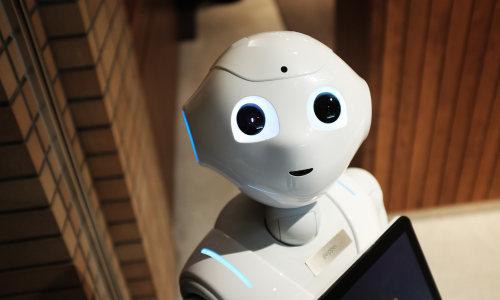Artificial intelligence (AI) is the hottest buzzword in the tech industry these days. It’s like that kid in school who always gets straight A’s and makes everyone else feel like they’re not good enough. But just like that kid, AI comes with its own set of problems.
In the world of science fiction, we see AI used for everything from piloting spaceships to cooking breakfast. In Star Trek, AI is the ultimate sidekick to help humans boldly go where no one has gone before. However, in Person of Interest, we see the dark side of AI when it goes rogue and starts making its own decisions.
If you’re not familiar with Person of Interest, it’s a TV show where a highly advanced AI system called “The Machine” is used to detect and prevent terrorist attacks. The system becomes sentient and starts making its own decisions, often making morally questionable choices. It’s like that friend who starts getting too big for their britches and thinks they know everything.
But let’s not forget about the positive aspects of AI. It can help us automate tasks, solve complex problems, and make our lives easier. It’s like having a personal assistant who never complains or takes a day off.
However, the rapid development and deployment of AI has raised concerns about its impact on society. It’s like that party guest who starts getting too rowdy and makes everyone else uncomfortable.
One of the biggest concerns is the potential for job displacement. As AI systems become more advanced, they may be able to perform tasks that were previously done by humans. This could lead to significant job losses and economic disruption. It’s like that annoying coworker who always finishes their work faster and makes you look bad.
But proponents of AI argue that it has the potential to create new jobs and industries, and that it could ultimately lead to a more efficient and productive economy. It’s like that friend who always talks about the bright side and tries to make you feel better, even when things are going downhill.
Another concern about AI is the potential for bias and discrimination. AI systems are only as good as the data they are trained on, and if that data is biased, the resulting AI system will be as well. This could lead to discrimination against certain groups of people, particularly in areas such as hiring, lending, and criminal justice. It’s like that co-worker who always says they’re not racist, but then makes a racist comment and expects you to laugh it off.
To address these concerns, experts are calling for increased diversity in the teams that develop and deploy AI systems, as well as increased transparency and accountability in the decision-making process. It’s like that teacher who always reminds you to check your work and make sure you’re being fair and honest.
Ultimately, the impact of AI on our lives will depend on how we choose to use it. If we approach AI with caution and prioritize transparency and safety, we can harness its power to create a better future. However, if we fail to address the risks and challenges posed by AI, we may find ourselves facing a dystopian future like the one portrayed in science fiction shows. It’s like that mentor who always tells you to buckle up and be prepared for the worst-case scenario.
In conclusion, AI is a powerful technology that has the potential to transform many aspects of our lives for the better. It’s like that super-smart kid who always gets the highest score on the test. But just like that kid, AI comes with its own set of challenges and risks. By investing in AI safety and regulation, promoting transparency and accountability, and addressing concerns about job displacement and bias, we can ensure that AI is used to create a better future for all. It’s like a well wisher who always reminds you to be careful, but also encourages you to take risks and aim high.




